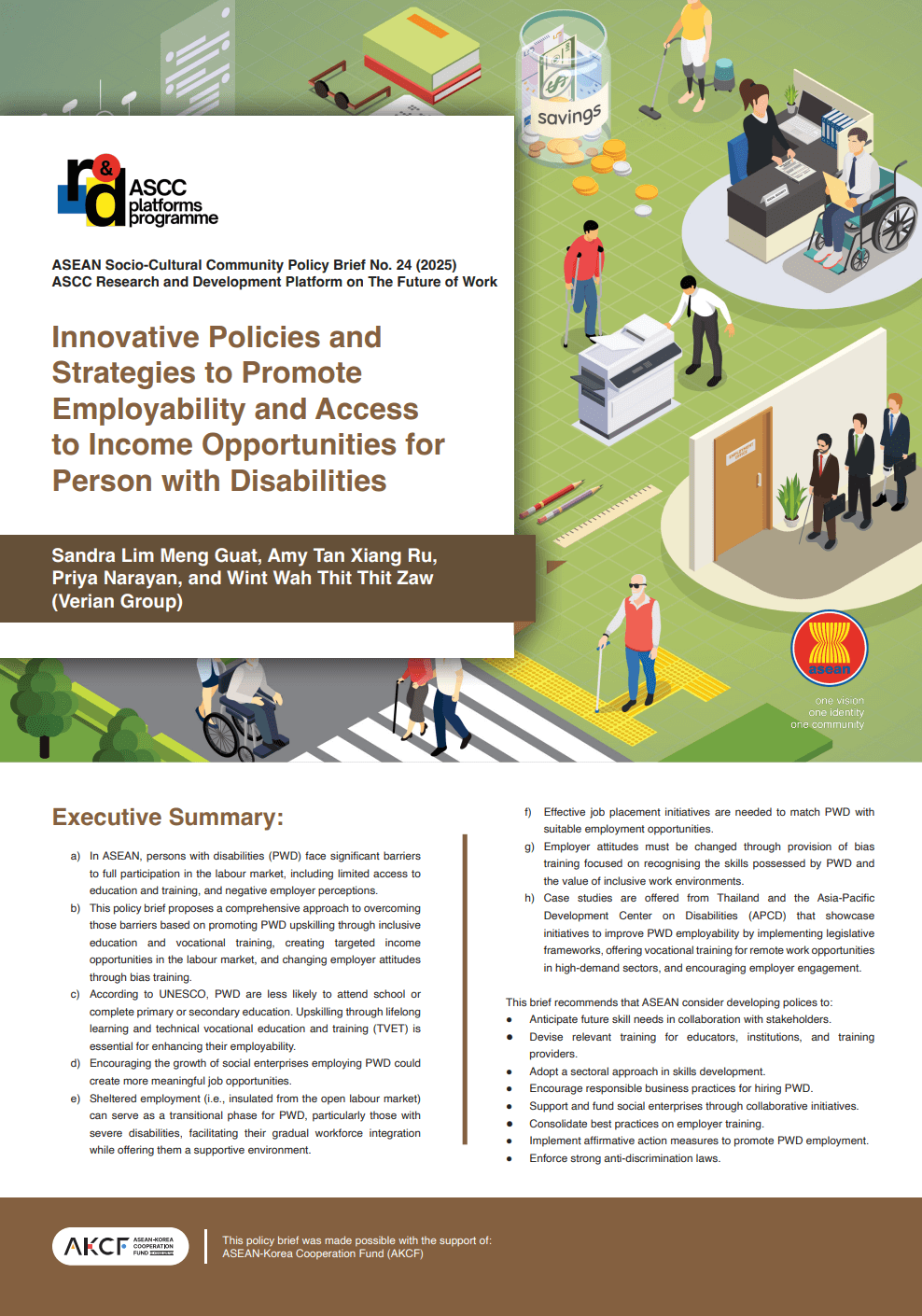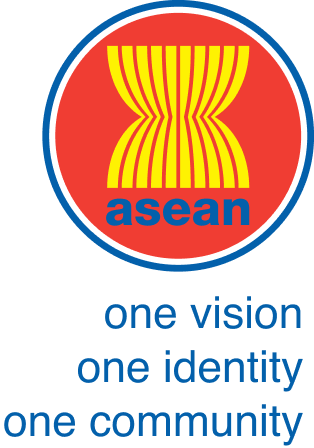

EXECUTIVE SUMMARY
a) In ASEAN, persons with disabilities (PWD) face significant barriers to full participation in the labour market, including limited access to education and training, and negative employer perceptions.
b) This policy brief proposes a comprehensive approach to overcoming those barriers based on promoting PWD upskilling through inclusive education and vocational training, creating targeted income opportunities in the labour market, and changing employer attitudes through bias training.
c) According to UNESCO, PWD are less likely to attend school or complete primary or secondary education. Upskilling through lifelong learning and technical vocational education and training (TVET) is essential for enhancing their employability.
d) Encouraging the growth of social enterprises employing PWD could create more meaningful job opportunities.
e) Sheltered employment (i.e., insulated from the open labour market) can serve as a transitional phase for PWD, particularly those with severe disabilities, facilitating their gradual workforce integration while offering them a supportive environment.
f) Effective job placement initiatives are needed to match PWD with suitable employment opportunities.
g) Employer attitudes must be changed through provision of bias training focused on recognising the skills possessed by PWD and the value of inclusive work environments.
h) Case studies are offered from Thailand and the Asia-Pacific Development Center on Disabilities (APCD) that showcase initiatives to improve PWD employability by implementing legislative frameworks, offering vocational training for remote work opportunities in high-demand sectors, and encouraging employer engagement.
RECOMMENDATION
This brief recommends that ASEAN consider developing polices to:
● Anticipate future skill needs in collaboration with stakeholders.
● Devise relevant training for educators, institutions, and training providers.
● Adopt a sectoral approach in skills development.
● Encourage responsible business practices for hiring PWD.
● Support and fund social enterprises through collaborative initiatives.
● Consolidate best practices on employer training.
● Implement affirmative action measures to promote PWD employment.
● Enforce strong anti-discrimination laws.







